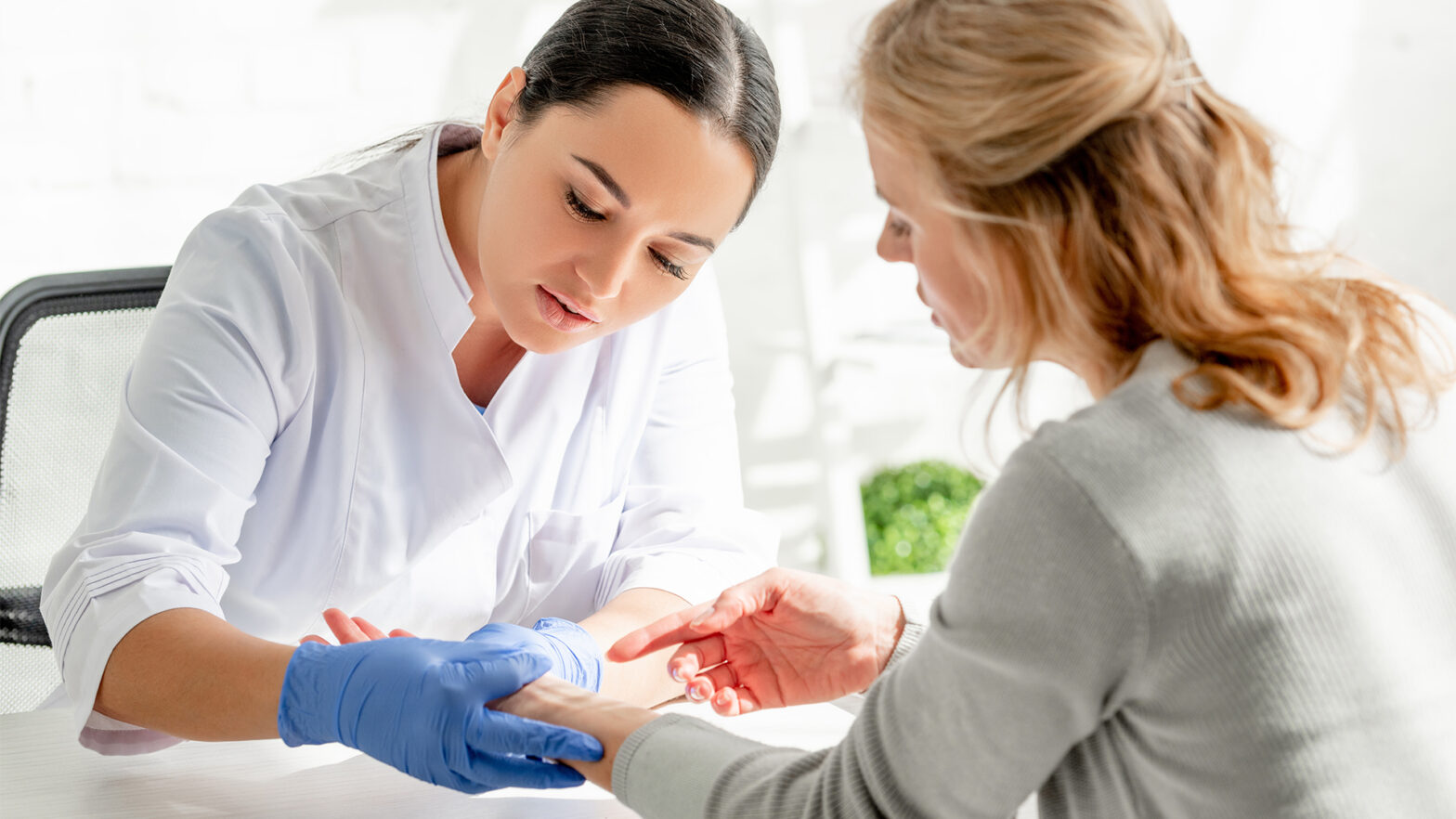
- 1 million photos taken for dermatologists using Consultant Connect’s technology last year
- Over three million photos taken in total over the last seven years
- Technology saved dermatology clinicians over 1,900 hours at Leeds Teaching Hospitals NHS Trust
Photo technology from Consultant Connect, the UK’s leading teledermatology platform, is helping patients to avoid unnecessary hospital visits and get dermatology treatment straight away 65% of the time.
This finding comes from Consultant Connect’s annual Performance Benchmarks report, which shows how its technology has helped to reduce unnecessary hospital referrals. The tech speeds up communication between primary care clinicians (such as GPs) and consultants, meaning patients get the most appropriate care quickly.
This platform is the UK’s most widely used teledermatology platform, covering over 42 million NHS patients in Great Britain.
Consultant Connect’s PhotoSAF technology allows clinicians to capture, store and forward photos and files directly to specialist NHS dermatology specialists for advice and guidance. This technology was used to take over one million photos last year, and over three million photos in the last seven years.
When using the telederm platform to share images for advice and guidance, it has led to the avoidance of unnecessary dermatology referrals: for cases that do not involve suspected cancers, 65% of patients don’t need to go to hospital, whilst cases where cancer is suspected result in 39% of patients being discharged before their appointment. With over 440,000 patients on dermatology waiting lists across England, this remarkable success rate could provide the key to slashing waiting lists and improving patient care.
Primary care clinicians in Leeds used the tech to take 11,000 photos in the last year alone. These were sent to dermatologists as part of the two week wait suspected skin cancer pathway, with over 4,000 patients being returned to their GP with management plans (39% of cases).
This allowed patients to get the care they needed while avoiding unnecessary hospital visits, reducing unnecessary anxiety or stress for those who don’t need to be seen on the suspected cancer pathway.
It also saved a significant amount of time, with the images being triaged in 75 seconds on average. Typical appointments are 12 minutes long, meaning for every 1,000 images the consultants in Leeds received, over 180 hours of clinical time was saved.
Tom Daniels, Senior Programme Lead (Planned Care, Cancer and Healthy Adults), Leeds Health and Care Partnership, said: “Using Consultant Connect’s teledermatology feature as part of our Leeds Cancer Programme has been a huge success in terms of efficiency and patient experience. The app’s photo feature is incredibly useful, as specialists typically require only images alongside the medical history to make a diagnosis.
“This information is securely shared through the app, allowing GPs to work efficiently without delays, benefiting everyone involved. From 2023 to 2024, over 4,000 patients were discharged on the basis of clinical assessment of their images, which avoided unnecessary hospital visits. This freed up a significant amount of capacity in secondary care and reduced anxiety, worry and stress for patients.”
Jonathan Patrick, CEO of Consultant Connect said: “Leeds’ commissioning of PhotoSAF in 2017 was the first teledermatology-at-scale project in the country. There is nothing more worrying than suspected cancer and Leeds’ brilliant work means that many patients are discharged with the good news that they do not have skin cancer whilst those patients with worrying lesions are seen and treated more quickly.
The story of Leeds’ great work has spread and the secure PhotoSAF app has now been used to capture over 3 million digital dermatology photos across the NHS. This virtual-first approach is saving patient lives and saving the NHS money, it’s one of the best examples of technology paying for itself and improving patient care. It started in Leeds and their inspiring management and clinical teams deserve a huge amount of credit.”

















